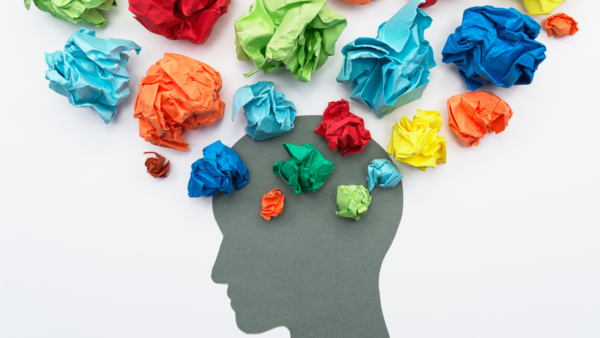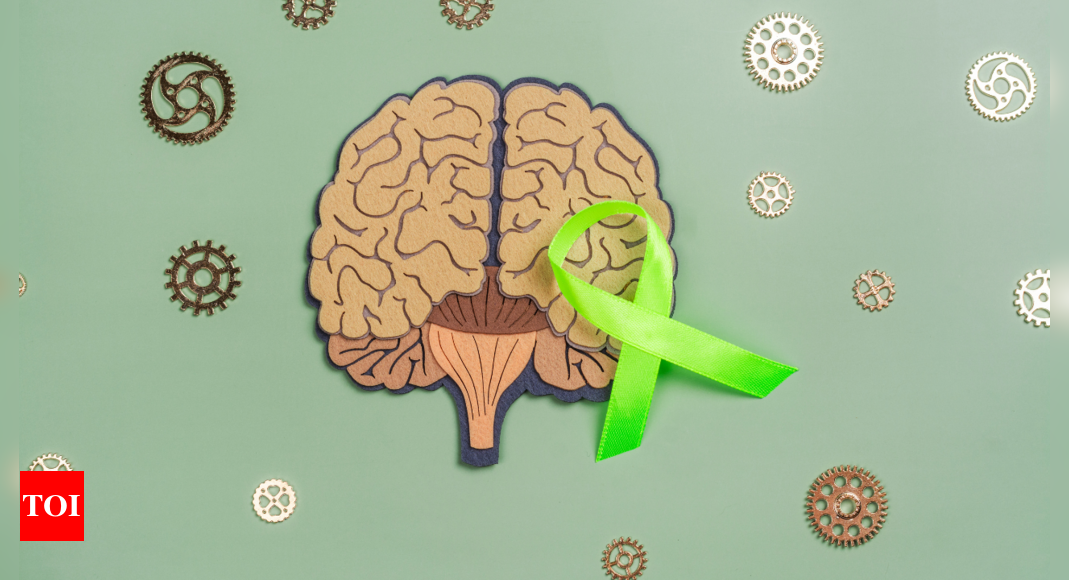[ad_1]
Asking this “How are you?” is important; so much so that perhaps we should ask ourselves too – “How am I (feeling)?” at least once a day. It can help us understand your mental health, that affects everything – from how we think, feel, and act.
Unfortunately, there are several myths and stigmas around the concept of mental health – both on the individual and society level. On this World Mental Health Day 2023, several mental health experts shared common myths with Etimes Lifestyle, and offered facts to replace them with.
Dr Jyoti Kapoor, Founder-Director and Senior Psychiatrist, Manasthali, busts the following common myths:
Myth: It’s a weakness to cry
Fact: One of the most prevalent myths is the belief that expressing emotions, especially through tears, is a sign of weakness. In reality, crying is a natural and healthy response to emotional experiences. It serves as a way to release pent-up emotions and can actually be therapeutic. Suppressing emotions, on the other hand, can lead to increased stress and mental health issues. Recognizing and addressing your feelings, including crying when necessary, is a sign of strength and emotional intelligence.
Myth: Mental health problems aren’t real
Fact: Another misconception is the idea that mental health problems are not genuine illnesses. This couldn’t be further from the truth. Mental health conditions, such as depression, anxiety, bipolar disorder, and schizophrenia, are real medical conditions that affect brain chemistry and functioning. They can have profound effects on a person’s life, just like physical health issues.
Myth: Seeking help means you’re crazy
Fact: Another stigma associated with mental health is the misconception that seeking professional help is only for those who are “crazy” or severely ill. In reality, therapy and counseling can benefit anyone facing emotional challenges or seeking personal growth. Mental health professionals provide valuable tools and strategies to enhance mental well-being and navigate life’s challenges.
Myth: You should keep your problems to yourself
Fact: Some people believe that discussing their mental health struggles with others is a sign of weakness or attention-seeking behavior. In fact, opening up about your feelings and seeking support from friends, family, or a therapist can be incredibly beneficial. Sharing your experiences can lead to understanding, empathy, and meaningful connections with others.

Mimansa Singh Tanwar, Clinical Psychologist, Head Fortis School Mental health program, Fortis National Mental Health Program, adds the following myths that no one should believe in:
Myth: Mental Illnesses are rare
Fact: Globally 970 million individuals, or 1 in every 8 people, suffer from a mental illness, with anxiety and depressive disorders being the most prevalent (WHO, 2011). These numbers emphasize the need for early identification and timely intervention.
Myth: Only certain type of people develop a mental illness
Fact: Mental health issues can affect anyone. They are prevalent across age groups, gender, ethnicity or socio-economic background. Mental health issues can affect anyone, even athletes and celebrities. We must work together to end the stigma and build acceptance.
Myth: Therapy or counseling can be done by anyone
Fact: Only trained professionals in the field have the skills to provide scientific evidence-based treatment as therapy or counseling.
Myth: Therapy can create dependency
Fact: The goal of therapy is to help the individual cope better with challenges that they may be facing in any aspect of their life – work, relationships, social, family or self. Therapy works towards building understanding and insight about the problem and empowering the individual with the skills that allow for better adjustment and self-growth.
Myth: I can’t do anything for someone with mental health needs
Fact: We all have a role to play in supporting people with mental illness. We must encourage people to open up, share and talk about their struggles related to mental illnesses. As part of the society, each individual must learn the skills of psychological first aid, where we look towards people who are in emotional distress, provide them our empathetic, compassionate care through active, non-judgmental listening and link them to the right support services you can best support them in times of need. At the same time, be mental health advocates and disseminate the message that help is available to normalize help-seeking.

Dr Sarika Kakwani, Consultant Psychiatrist, UK, shares two common beliefs around mental health that are myths and not the truth:
Myth: People with mental health conditions are violent
Fact: People with mental health conditions are no more violent than the general population. In fact, they are more vulnerable to being victims of violence. The rates of violence in mentally unwell people are generally linked with concurrent use of alcohol or illicit drugs.
Myth – People with mental health conditions cannot function and hold down a job
Fact: People with depression, anxiety, bipolar and even schizophrenia are able to work and function well in society. A lot of famous celebrities have suffered from these conditions and yet worked and contributed well to society.
Dr Meenakshi Jain, Assistant Professor, Dept of Psychiatry, Amrita Hospital, Faridabad, debunks several false beliefs around mental health, and explains the facts in detail:
Myth: Children do not have mental illness. They just pretend to be dull to avoid work and school, so there’s no need to take it seriously
Fact: According to the World Health Organization, one in seven 10-19-year-olds experiences a mental disorder, accounting for 13% of the global burden of disease in this age group. Depression, anxiety, and behavioral disorders are among the leading causes of illness and disability among adolescents. Childhood and adolescence, especially the early adolescence period, are extremely important, as it is during this period that the foundation of healthy lifestyle choices, such as healthy eating and exercising, is set. This age group is much more sensitive to adverse environments such as bullying, harsh parenting, and sexual violence, making them susceptible to mental health disorders. Early detection and treatment are of utmost importance in this age group because if not managed at the appropriate time, it can lead to adverse/socially inept behavior or risk-taking behavior, affecting children socially and academically. Also, the mental disorder/trauma can carry on into adulthood, affecting their future.
World Mental Health Day 2023: Signs you have anxiety and should see a therapist
Myth: If a child has mental illness, that means parents did not educate the child well. Only bad parenting causes mental illness in a child
Fact: A healthy home environment and supportive caregivers play a significant role in raising a mentally healthy and happy child. Research has shown that children growing up in families where they had adverse experiences, such as being a victim or witness of domestic violence, mental health problems in the family, or living with divorced parents, tend to have a higher prevalence of mental health-related issues. But none of these experiences can guarantee the onset of mental illness; they can only exacerbate pre existing issues. Parenting style, whether authoritative, permissive, or uninvolved, isn’t the only indicator of how a child turns out. Neurodevelopmental illnesses such as IDD, ADHD, and Autism Spectrum Disorder have a biological basis and cannot appear in a child as a result of bad parenting.
Myth: Mental illnesses affect only weak and unintelligent people
Fact: Mentally ill persons are often stigmatized and discriminated against. Families with mentally ill members are often criticized for troubling society and for failing to provide adequate moral education to the affected person. One must bear in mind that mental illness is not a character flaw; rather, it has a biological basis just like physical illness. Anyone belonging to any social status, educational background, or economic status can suffer from mental illness. It should also be understood that just as only a few physical illnesses like meningitis, extreme malnutrition, infection in the brain, exposure to toxins can affect a person’s intelligence, similarly, only a handful of mental illnesses impact intelligence. Most people with mental illness are intelligent.
Myth: Mental illnesses are a lifelong affair and require lifelong treatment
Fact: Mental illnesses come in multiple types. The duration of treatment depends on the type of illness the person is suffering from. For the majority of mental illnesses such as depression, anxiety disorder, ATPD, OCD, manic disorder, etc., are time-bound. It should also be noted that if treated adequately, the risk of recurrence of such illnesses also reduces significantly. Only a significantly minor number of patients with mental illness require hospitalization. And even among those requiring hospitalization, most improve with short-term hospitalization only.
Myth: Just think positive, distract yourself, and mental illness will go away. Mental issues are caused by thinking too much. All one needs to do is to be strong and control oneself
Fact: Mental illnesses have a biological basis. Overthinking and negative thinking are symptoms of mental illness rather than being the cause. Mental illnesses like depression and anxiety present with negative thinking, social withdrawal, disturbed sleep, etc. With adequate treatment, these symptoms reduce significantly. Mental illnesses are not under the control of the affected person’s will. Strong willpower cannot reduce symptoms. Thus, mentally ill persons should not be blamed for their behavior. Rather, a supportive and positive societal attitude and adequate pharmacotherapy can bring about a significant difference in the condition of the mentally ill.
[ad_2]
Source link

